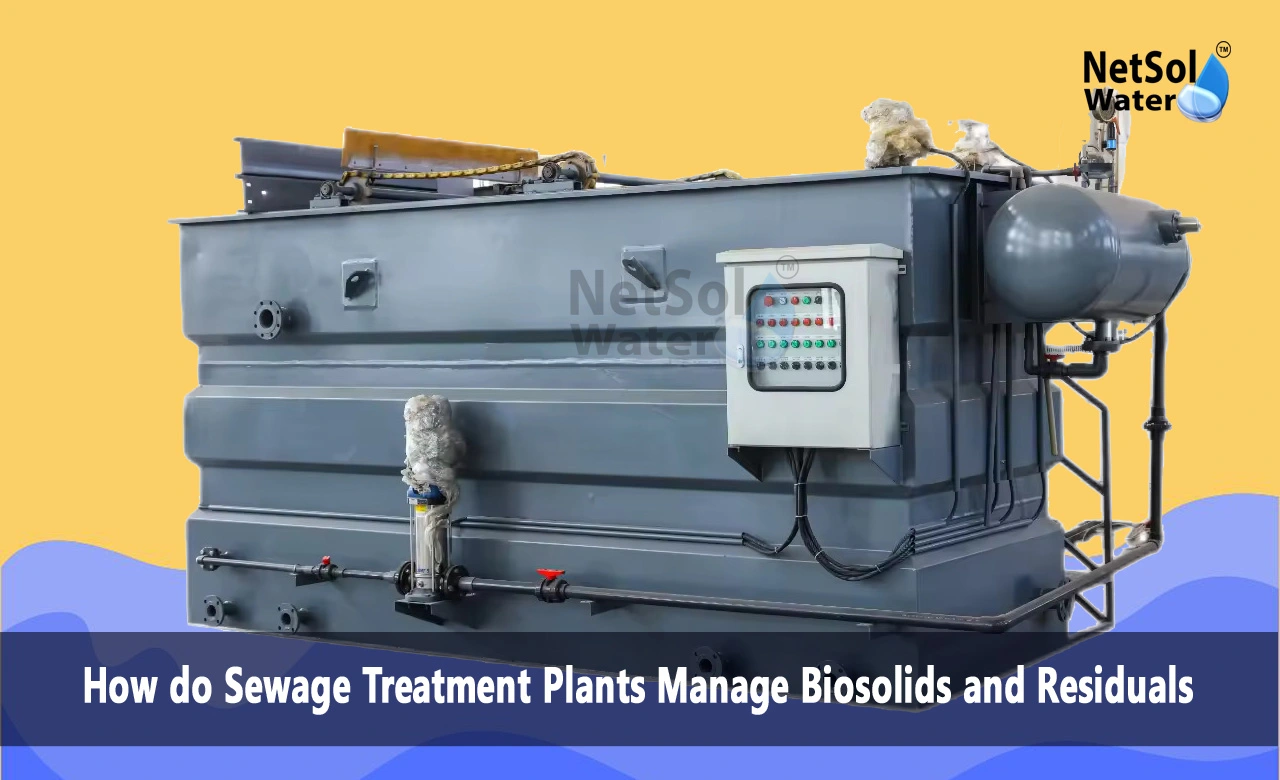How do Sewage Treatment Plants Manage Biosolids and Residuals?
In addition to producing clean water, sewage treatment plants generate significant volumes of solid byproducts known as biosolids or residuals. These semi-solids consist of the organic matter and inorganic compounds removed during wastewater treatment processes. As societies strive for sustainability, responsibly managing biosolids to minimise environmental impacts while extracting value has become a priority. We will examines strategies deployed by sewage plants to process, stabilise, and beneficially reuse biosolids resulting from treatment operations.
Stabilisation Processes
Before biosolids can be safely handled or land-applied, treatment plants must first stabilise the solids to reduce pathogens, vector attraction, odours, and degradability. Common stabilisation methods include:
Aerobic Digestion - Aeration tanks agitate the biosolids to facilitate aerobic bacterial decomposition,stabilising organic matter.
Anaerobic Digestion - Sludge is broken down by anaerobic bacteria in enclosed heated digesters, which produce biogas as a byproduct.
Alkaline Stabilization - Biosolids are treated with alkaline materials like lime to raise pH, which chemically disinfects and dries the solids.
Composting - Dewatered biosolids are mixed with a bulking agent like woodchips and biologically composted to produce marketable soil products.
Heat Drying/Pelletisation - Dewatered solids are directly or indirectly heated to moisture levels below 10% and pelletised into stable granular fertilisers.
These stabilisation processes render biosolids beneficial for land applications by significantly reducing odours and health risks associated with unstabilised raw sewage sludge.
Beneficial Reuse Applications
With proper treatment, biosolids can be sustainably reused as a valuable commodity instead of wasted through disposal options like landfilling or incineration.
Land Application - Treated biosolids provide an enriched organic fertiliser and soil amendment product for agriculture and landscaping applications when applied at approved rates determined by nutrient management plans.
Surface Mine Reclamation - Biosolids are used to establish nutrient-rich topsoil cover at depleted surface mines and quarries to support vegetative regrowth.
Cement Manufacturing - Dried biosolids with high nutrient and energy content can be used as supplementary fuel for cement kiln operations.
Renewable Energy - Anaerobically digested biosolids generate methane biogas, a renewable fuel that can be combusted for electricity and heat.
Biosolids resolve the issue of what to do with sewage treatment residuals while simultaneously providing income potential and recovering resources that contribute to circularity.
Environmental Management
Despite stabilisation and beneficial use opportunities, biosolids still contain some residual metals, pathogens, and trace synthetic compounds originating from industrial and household inputs. Sewage treatment plants institute strict environmental controls:
Monitoring - Comprehensive testing regimes analyse biosolids contents to ensure compliance with strict EPA regulations and state policies before land application.
Pretreatment Programs - Plants work with industries to reduce pollutant discharges via permitting, inspections, and enforcement.
Public Outreach - Maintaining public confidence through science-based education and transparent reporting on biosolids quality.
Looking ahead, emerging treatments like hydrothermal processing could extract even more value from biosolids while leaving behind benign residuals for safer disposal.
Conclusion
Once considered a problematic waste disposal issue, modern approaches now enable sewage treatment plants to recover value from biosolids while safeguarding environmental quality responsibly. Stabilisation processes like anaerobic digestion, composting, and alkaline treatment reduce biosolids into marketable fertilisers and sources of renewable energy. With comprehensive monitoring and regulations governing land applications, biosolids now present a wealth of opportunities for boosting agricultural productivity, rehabilitating depleted lands, and contributing to sustainability in a circular economy.
To explore customised commercial RO plants, Industrial RO plants, ETP or STP solutions for your needs in your areas and nearby regions, contact Netsol Water at:
Phone: +91-965-060-8473, Email: enquiry@netsolwater.com



